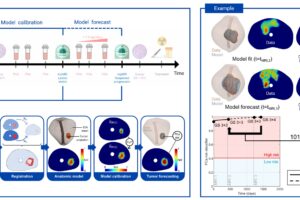For years I have lived with a man who throws out food on the exact day the food is marked “sell by.” I have pointed out to him two mistakes: that “sell by” does not mean “best if used by,” and that “best if used by” does not mean the food has expired.
How can one tell whether food is yucky? That is why God made noses. Yet, I have never won even a single round of this argument with him. Apparently I am not alone. Edible food waste in the U.S. is reported to cost $29 billion per year and cover an amount that could feed all food-insecure Americans three times over.
Now Congress has entered the fray. A bill recently proposed would require the uniform phrase “best if used by” for shelf goods and “expires on” for perishable goods. The bill will push back the listed dates by eliminating the earlier “sell by” dates from consumer packaging.
That is the one good idea in the bill. But unfortunately there is also a bad idea in the bill.
The bill has a clause that prohibits state experimentation with food labeling that could do an even better job at reducing food waste, for instance by discouraging people from throwing out food after the “best if used by” date. This is not the right approach.
Texas, or any other state, for example, should be able to run a marketing strategy contest to solicit ideas about how a label could communicate that consumers should use their judgment, otherwise known as their sense of smell. A state could empirically test the different ideas and implement the winner.
Regardless of whether the packaging phrase is “sell by” or “best if used by,” it is what is known in legal vocabulary as a safe harbor. A safe harbor gives information that a certain behavior – in this case, using the food by the listed date – is OK. But a safe harbor is also silent about whether another behavior – in this case, using the food after the listed date – is also OK.
Technically, a “best if used by” date leaves open the possibility that the food is still safe after that date. But in the “best if used by” safe harbor, the date is the salient, easy-to-grasp part of the label. Consumers feel certainty and comfort that food is safe if they eat it before the listed date. They will seek to fit within the safe harbor by throwing food out, without any further investigation, by that date. This is especially true because there is simply no information about what to do when the date has passed.
Food labeling should get consumers to exercise judgment about whether food is still good outside the safe harbor. It should try to slow down the waste of food even past the “best if used by” date. But the federal law does not do this. And worse, because it is a uniform federal labeling law, it prohibits states from experimenting with how to get consumers to use their noses to reduce food waste.
This is the wrong approach.
Admittedly, encouraging consumers to exercise judgment about when food is no longer good is a tricky thing to do. It requires a clever strategy to connect consumer behavior with food’s gradual decay process. And the strategy should be tested and proved.
Nothing can substitute for actual data. That is why the right way to solve the problem is to allow the states to act as regulatory laboratories, and permit them to conduct field experiments with different labels. The United Kingdom does this with the so-called Nudge Unit, which runs behavioral experiments like this all the time.
Lawmakers should amend the bill to allow states and the federal government to experiment with labeling variations. Congress should attach, as a condition to using labeling variations, the requirement that states and the federal government collect and share data about their experiments.
Let’s not block a solution to the mystery of what would make people smell the milk before they throw it out. Household harmony, not to mention food security, could be at stake. Perhaps that is an argument that I could win.
Susan Morse is an assistant professor of law at The University of Texas at Austin.
A version of this op-ed appeared in the Austin American Statesman and the Beaumont Enterprise.
To view more op-eds from Texas Perspectives, click here.
Like us on Facebook.



